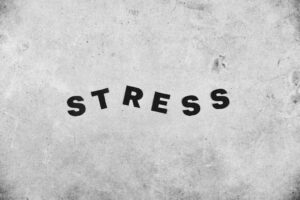Effective Strategies for Managing Stress and Anxiety
Table of Contents
In today’s fast-paced world, managing stress, anxiety, and their impact on our daily lives is more important than ever. Whether navigating work pressures, personal challenges, or global uncertainties, finding effective strategies to cope with stress and anxiety is essential for maintaining overall well-being. In this comprehensive guide, we will explore practical tips and techniques to help you effectively manage stress and anxiety, empowering you to lead a more balanced and fulfilling life.
Understanding Stress and Anxiety
Stress and anxiety are common experiences in today’s fast-paced world, affecting both our mental and physical well-being. Learning effective strategies for managing these feelings is crucial for maintaining a balanced and healthy life. In this guide, we will explore practical tips to help you effectively manage stress and anxiety. Stress is the body’s natural response to challenges or demands. It can be triggered by various factors such as work pressure, financial worries, or personal relationships. Anxiety, on the other hand, involves excessive worry or fear about future events, often accompanied by physical symptoms like rapid heartbeat or sweating.
The Impact of Stress and Anxiety on Health
Chronic stress and anxiety can have detrimental effects on your health, including increased risk of cardiovascular diseases, digestive issues, weakened immune system, autoimmune diseases, and sleep disturbances. Managing stress effectively is essential to mitigate these risks and improve overall well-being.
Strategies for Managing Stress and Anxiety

Engage in Regular Physical Activity
Physical exercise is one of the best ways to combat stress and anxiety. It releases endorphins, which are natural mood elevators and helps relieve muscle tension and improve sleep quality.
Regular exercise is beneficial for managing worry and tension because it has physiological and psychological effects that promote overall well-being. Physiologically, exercise triggers the release of endorphins, hormones that reduce pain perception and feelings of happiness and relaxation. It also helps regulate severe cortisol levels; the primary stress hormone, and reduces stress and anxiety. Exercise improves sleep quality which becomes essential for stress management and mood regulation.
On a psychological level, exercise becomes a much-needed distraction from daily worries and stressors, shifting focus and promoting a positive mindset. Physical activity enhances self-esteem and confidence through goal-setting and achievement, empowering individuals to better cope with stress. Activities like yoga and tai chi combine movement with mindfulness practices; promoting relaxation and reducing anxiety through focused breathing and body awareness.
Socially, exercise often involves interaction with others providing opportunities for social support and connection, which can mitigate stress and enhance emotional well-being. The cognitive benefits of exercise include improved concentration, memory, and problem-solving skills, which contribute to better stress management and resilience.
Regular exercise improves physical fitness but plays an important role in maintaining mental health by reducing stress hormones, promoting relaxation, enhancing mood, fostering social connections, and improving cognitive function. These combined benefits make exercise a powerful tool for managing stress and anxiety and promoting overall well-being.
Maintain a Healthy Diet – Duh!
Eating a balanced diet plays a special role in managing stress and anxiety. Certain foods can either exacerbate or alleviate stress levels.
A healthy diet is crucial for mental and physical health because it provides essential nutrients that support brain health and mood regulation. Nutrients like omega-3 fatty acids from fish and nuts reduce brain inflammation linked to stress. Complex carbohydrates from whole grains and vegetables stabilize blood sugar, preventing mood swings. Foods rich in tryptophan (turkey, nuts) boost serotonin production for relaxation, while those supporting GABA (whole grains, seafood) have calming effects. A fiber-rich diet supports a healthy gut, improving mood via the gut-brain axis. Antioxidants in berries and greens protect the brain from stress-related damage. In conclusion, a nutritious diet fosters resilience, enhances mood, and supports mental well-being during stressful periods.

Ensure Adequate Sleep
Quality sleep is shockingly so important for stress management. Lack of sleep can increase cortisol levels (the stress hormone) and impair cognitive function.
Sleep plays a crucial role in our ability to manage stress and anxiety effectively. When we sleep, our bodies undergo important processes that support both physical and mental health. Physically, sleep allows our bodies to repair and rejuvenate. Muscles, tissues, and organs heal, causing the immune system to strengthen, and making us more resilient to stressors. Mentally, sleep is vital for cognitive function. It enhances our ability to concentrate, make decisions, and solve problems. These are essential skills for coping with stressful situations.
One of the key benefits of adequate sleep is its impact on hormonal balance. Balanced cortisol levels contribute to a more stable mood and reduced feelings of anxiety. Additionally, sleep promotes the production of melatonin, which regulates our sleep-wake cycle but also acts as an antioxidant in the brain (Detox the brain), protecting it from oxidative stress caused by chronic stress.
Emotionally, sleep supports our ability to regulate emotions, without the feeling of becoming overwhelmed. It provides the brain with the opportunity, to process and integrate emotional experiences from the day. This emotional processing helps us maintain emotional resilience, reducing the likelihood of becoming overburdened.
Neurologically, sleep supports the production of neurotransmitters like GABA (Gamma-Aminobutyric Acid), which has calming effects on the brain. GABA helps reduce neuronal excitability promoting relaxation and reducing anxiety levels. Adequate sleep balances the sympathetic nervous system, which controls our fight-or-flight response. When this system is balanced, we are less prone to overreact to stressful situations.
Furthermore, good sleep habits contribute to overall behavioral health. Well-rested individuals are more likely to engage in healthy coping mechanisms, such as exercise and socializing, which are known to reduce stress levels. On the contrary, sleep deprivation increases the likelihood of engaging in unhealthy behaviors like overeating or substance abuse, which can exacerbate feelings of anxiety.
Natural Supplements to support stress and anxiety.
Incorporate stress-relieving activities into your daily routine to promote relaxation and reduce tension. Supplements can be a useful part of a comprehensive approach to managing stress and anxiety, including lifestyle changes like a balanced diet, regular exercise, and sufficient sleep. Always consult a healthcare professional to ensure the supplements are safe and appropriate for specific health needs.
Acknowledging which supplements to take can be daunting, let’s do a quick breakdown for simple additions.
Ashwagandha: An adaptogenic herb that helps the body manage stress. It can reduce cortisol levels and promote relaxation.
Holy Basil: is often used to reduce stress and anxiety. It may help regulate cortisol levels, the hormone associated with stress response, and promote relaxation.
Magnesium: is a mineral that is key in relaxation and stress management. Magnesium deficiency has been linked to increased anxiety.
Omega-3 Fatty Acids: In fish oil supplements, omega-3s have anti-inflammatory properties that may help reduce anxiety symptoms.
B Vitamins: Particularly B6, B12, and folate (B9), which play a role in neurotransmitter synthesis and mood regulation.

Conclusion
Managing stress and anxiety effectively is crucial for maintaining overall well-being and reducing the risk of related health problems. By incorporating these strategies into your daily life, you can better cope with stressors, improve your mental resilience, and lead a healthier, more fulfilling life.
For more information: CLICK Here.




